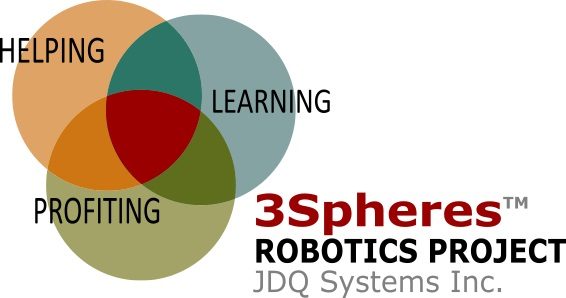Researchers…
The Robot Prototype
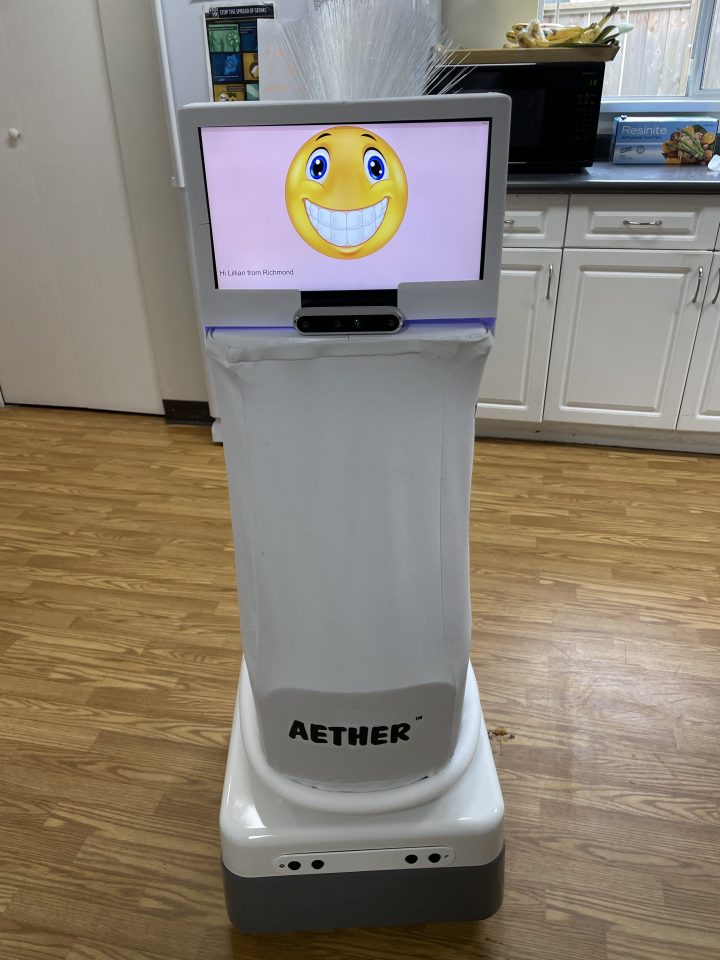
Aether 2.0 is a collaborative service robot that is being designed to help people with developmental disabilities and older adults gain and keep their independence.
Autonomous navigation for independent movement throughout public indoor spaces
Client monitoring and inspection to free up the time of scarce human resources
Social interaction to provide entertainment and to redirect anxiety driven behaviour
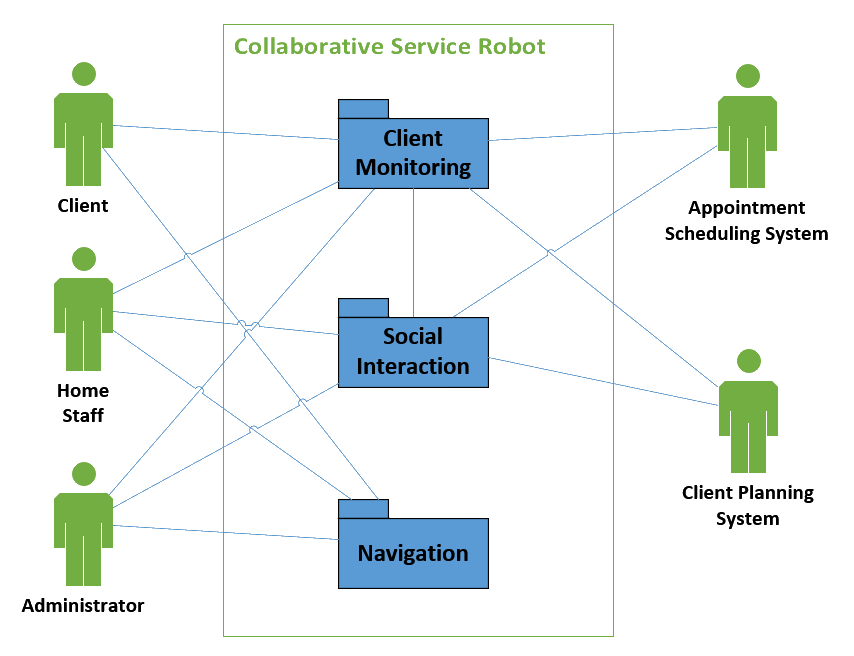
More details about Aether’s hardware and software are available on Aether’s Technology page.
Problems & Desired Outcomes
Researchers
Current Researchers
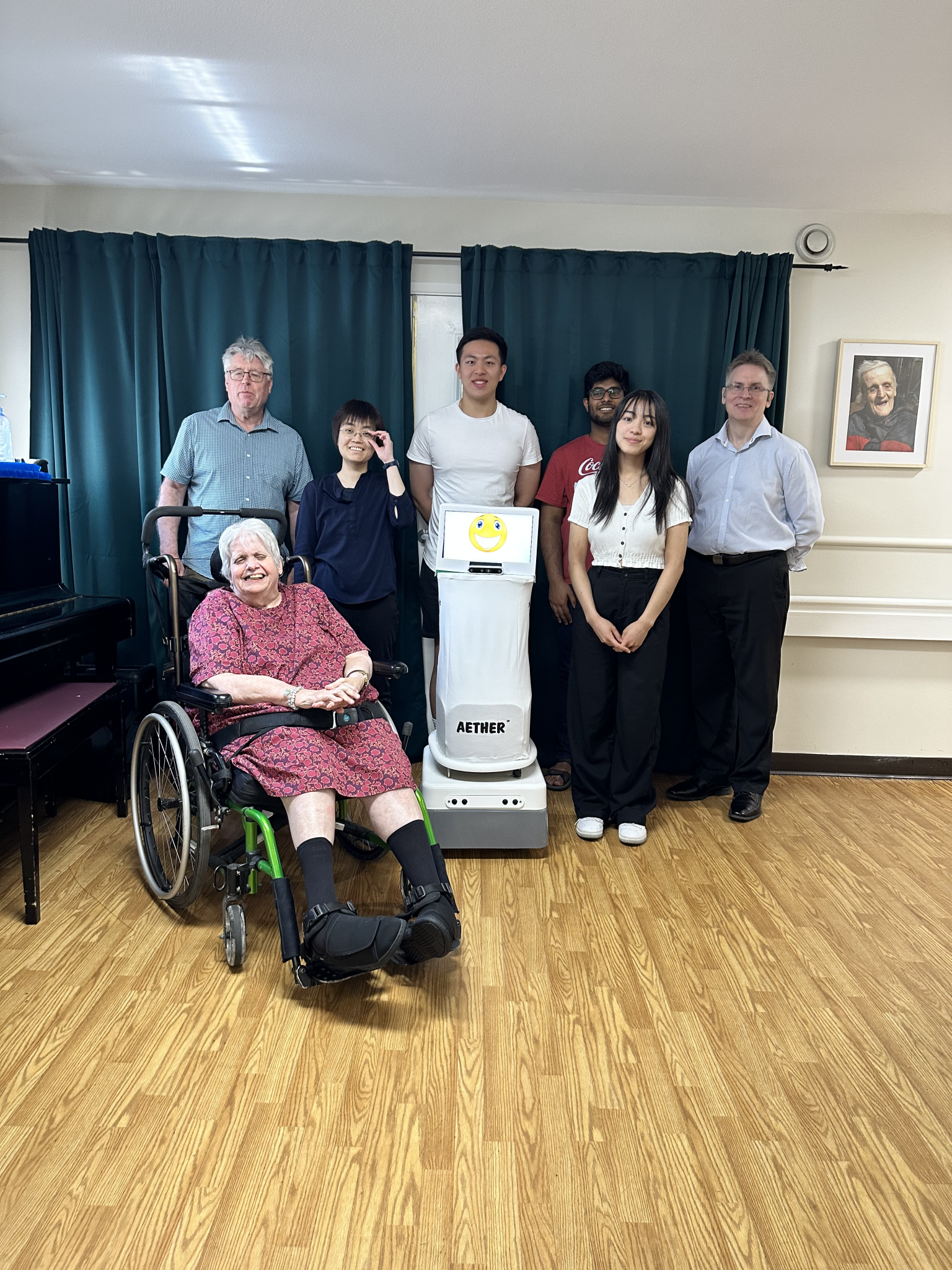
UBC IDEA Lab Research Team
Arisa Kinugawa, Research Assistant | BA in Psychology & BASc in Nursing at UBC
(phase 1 lead)
Kate Davies, PhD Candidate (phase 2 lead)
Karen Wong, PhD Candidate (phase 3 lead)
…and Freshta Hasim, Ivan Yu, Jason Fu,
Albin Soni, Rachel Xia, and Dr. Lillian Hung
Silas Franco dos Reis Alves, PhD
Silas has been collaborating with researchers in Academia and Industry for 10+ years to mobilize knowledge and create novel robots to aid people. His main research interest is employing Human-Robot Interaction (HRI) to create machines that help people, in particular those with disabilities, to achieve their personal and professional goals. He joined the 3SRP project to work on person identification through voice, so that Aether robot could recognize clients and provide personalized services. He is now working to improve Aether’s person detection and recognition, with emphasis in human-fall detection, and to create Virtual Reality environments to simulate HRI and navigation use cases.
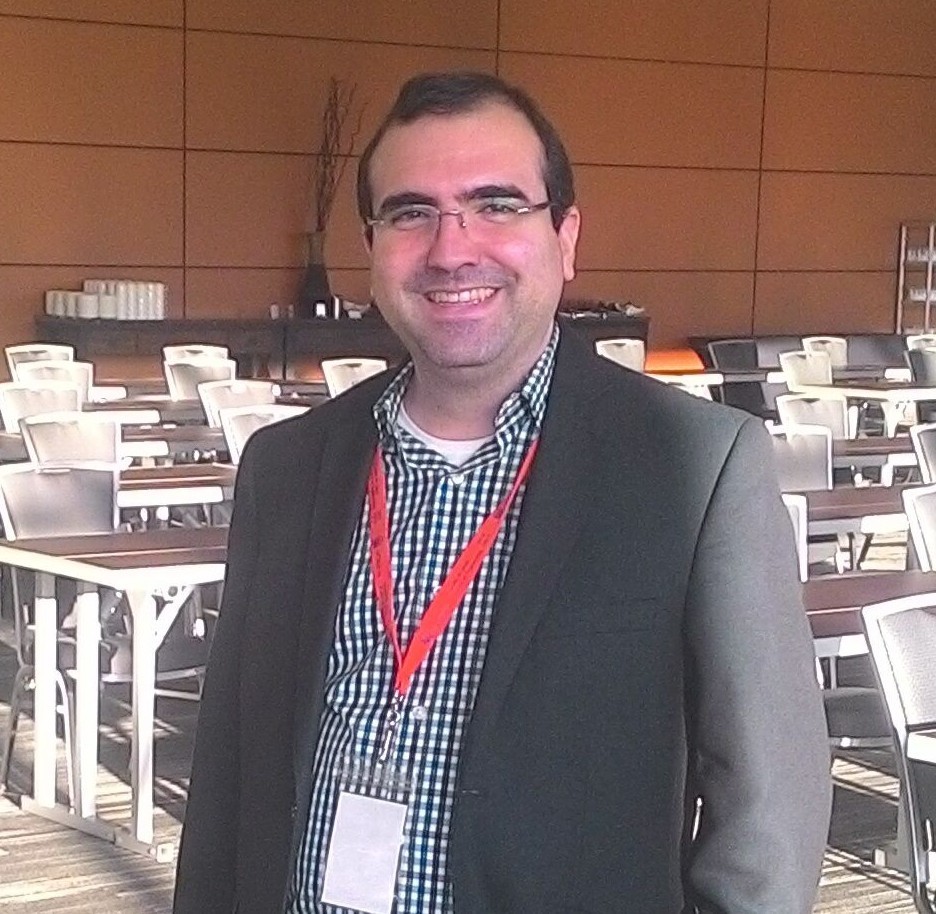
Past Researchers
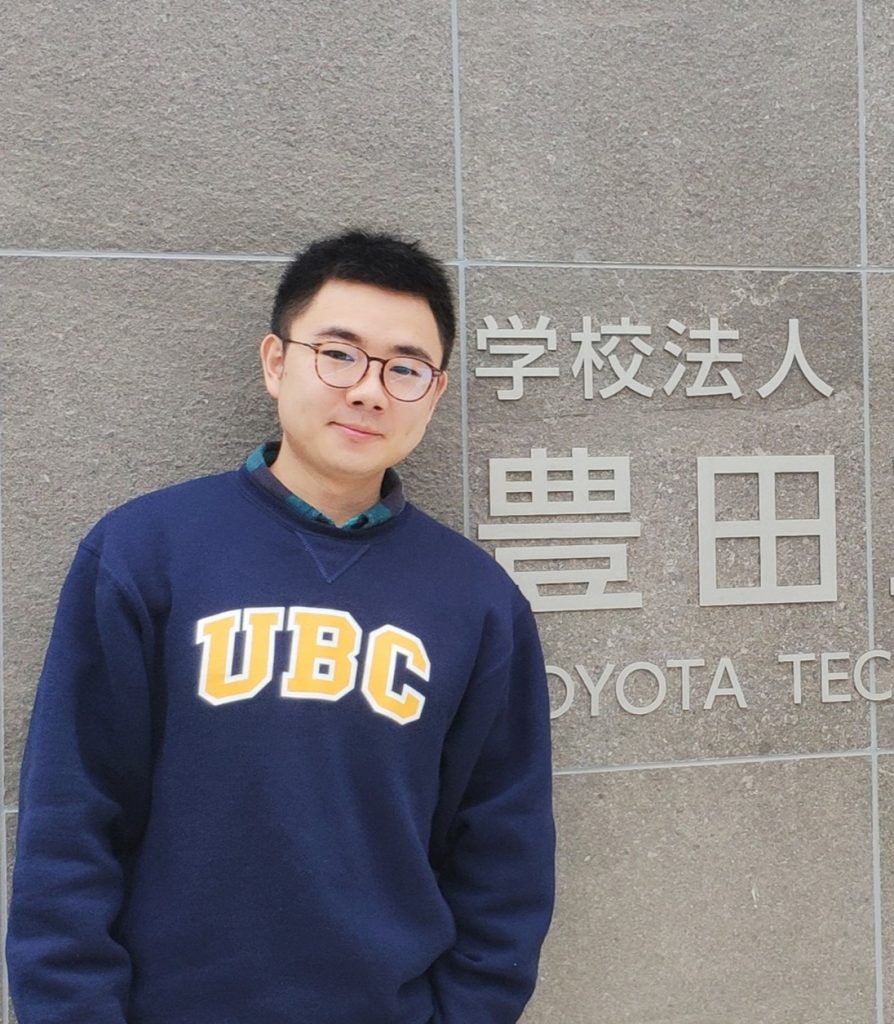
Delun Chen, MASc
Delun’s work focuses on the industrial design of Aether 2.0. The goal is to improve the appearance of the Aether robot and develop a user-friendly enclosure that is also compatible with Aether’s core functionalities. Delun iterates through four development cycles to ideate conceptual prototypes. The robot candidates with different combinations of contours, lines and colours are created using CAID techniques. To maximize user acceptance of the Aether 2.0 industrial design, a user-centered approach, using virtual reality, is applied to collect user feedback in a safe and healthy manner.
Alvaro Joffre Uribe Quevedo, PhD
Dr. Uribe Quevedo is an Assistant Professor at the Ontario Tech University. He received his bachelor’s degree in Mechatronics Engineering from Universidad M. Nueva Granada – Colombia, followed by a Master and Doctoral degree in Mechanical Engineering from the Universidade Estadual de Campinas – Brazil. In 2016 he concluded his Post-Doctoral appointment at the Games Institute at the University of Waterloo researching the effects of games in medical training. His research interests are in virtual reality applications and assessment tools, tailored to immersion and interactions for effective, inclusive and meaningful experiences. He is passionate about gaming technology and an early adopter of immersive technologies.
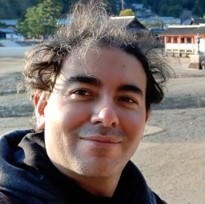
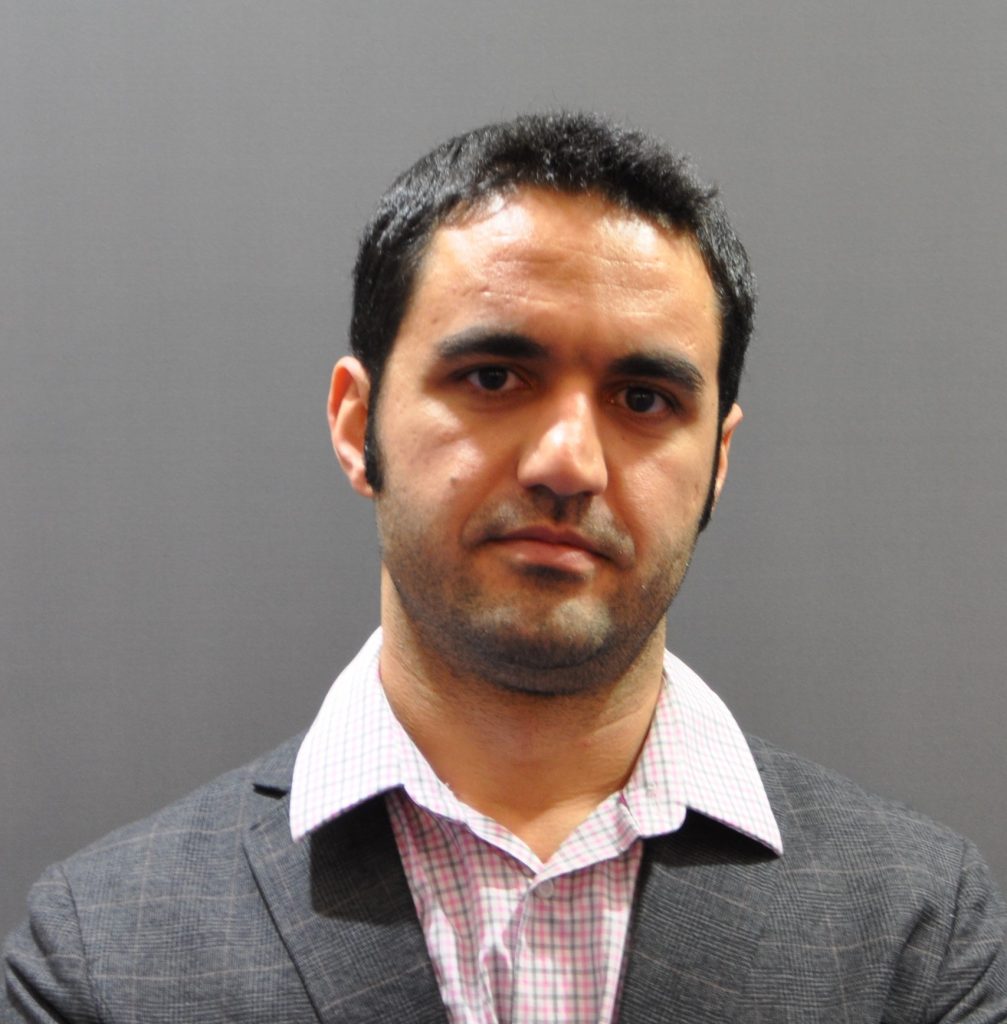
Sina Radmard, PhD
Sina has managed the research aspect of the project while working directly with the rest of the researchers. He has successfully applied for numerous governmental and non-governmental grants that continue to allow us to build a talented research team over the years. On the technical side, he has worked on all aspects of the project ranging from autonomous navigation to visual recognition to voice/visual interaction to hardware/software integration and conducting user studies.
Wesley Chan, PhD
Wesley worked on Aether’s person following skills, integrating a multi-modal person tracker with Aether’s face recognition and dialog modules, enabling Aether to follow facility staffs or residents around, and play tag with people. He also worked on Aether’s hazard region labeling module, enabling users to inform Aether of hazardous regions, and Aether to travel safely through these regions. In addition, Wesley worked on Aether’s power consumption bench-marking and battery solution.
Current position: A research fellow at the Department of Electrical and Computer Systems Engineering at Monash University.
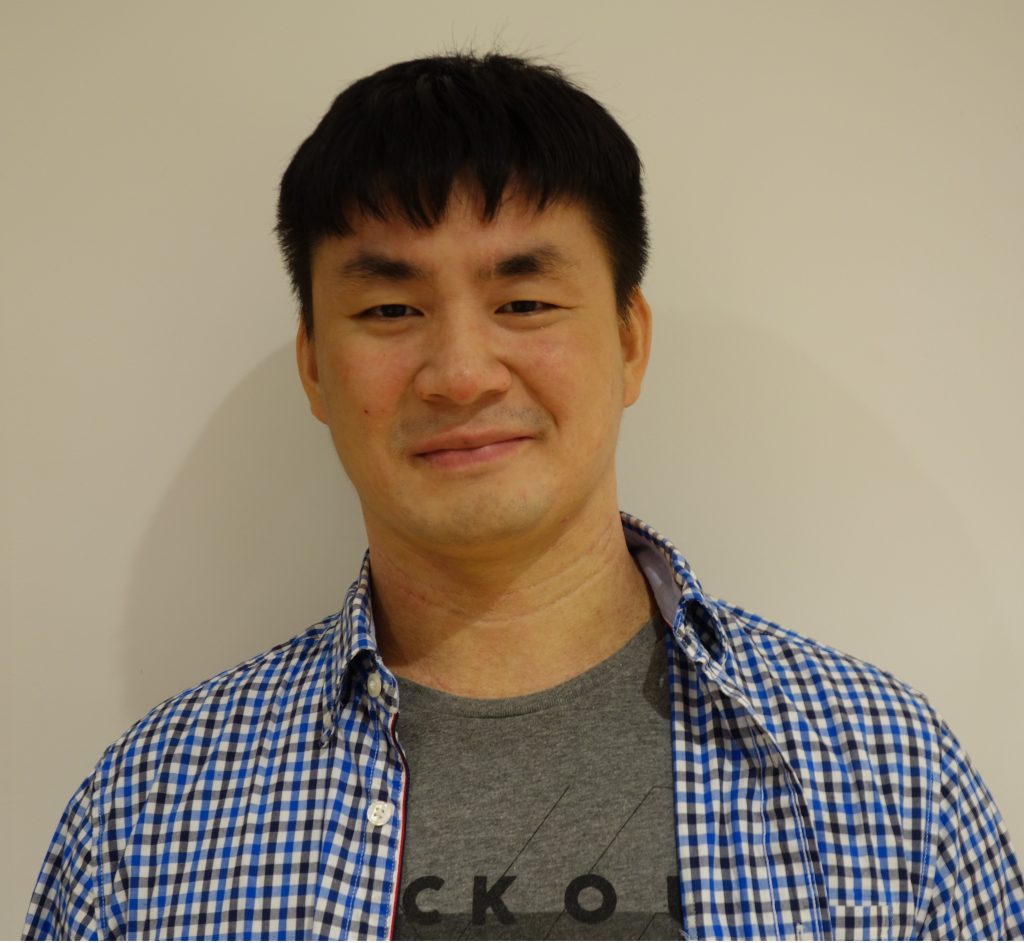
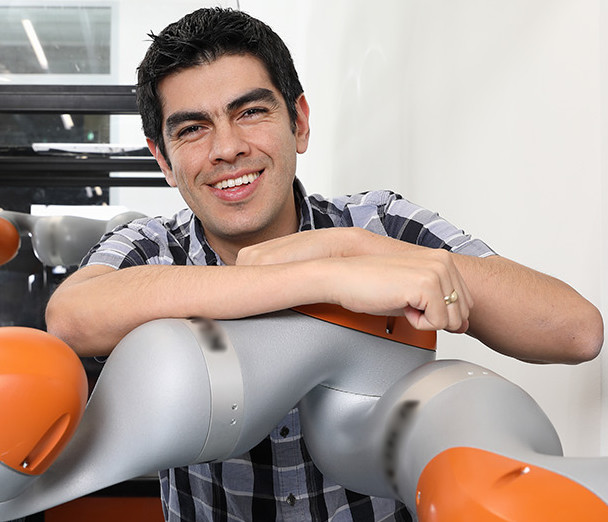
Camilo Perez Quintero, PhD
During his time with the project Camilo focused on: 1) Providing Aether with the capacity to detect, localize, and avoid small objects in its surrounding. He developed and integrated into the robot software pipeline a computer vision algorithm to deal with small objects laying on the ground, e.g., shoes, purse, glasses, keys, etc. 2) Providing Aether with the capacity of controlling its speed based on house zones. For instance, every time the robot goes through a door it has to reduce the velocity to avoid tipping due to the door sill plate. 3) Restructuring Aether software packages to overcome problems with sensor delays and to provide an easier deployment of software on multiple platforms.
Current position: CTO and Co-founder of YPC Technologies.
Bulmaro Valdés, PhD
Bulmaro is a biomedical engineer whose research focus is to use technology to improve the quality of life, recovery process, and care of people with disabilities and seniors. The multidisciplinary nature of his work allows him to collaborate with therapists, neuroscientists, kinesiologists, caregivers and engineers.
He collaborated with the industry partner (JDQ Systems Inc.) on the development of a testing plan, ethics application and a communication platform (Google Home, Google) for Aether.
Current position: As a Postdoctoral Fellow at Simon Fraser University, Canada, his projects involve the use of robotic devices and immersive virtual reality for rehabilitation, and galvanic vestibular stimulation for improving motor performance.
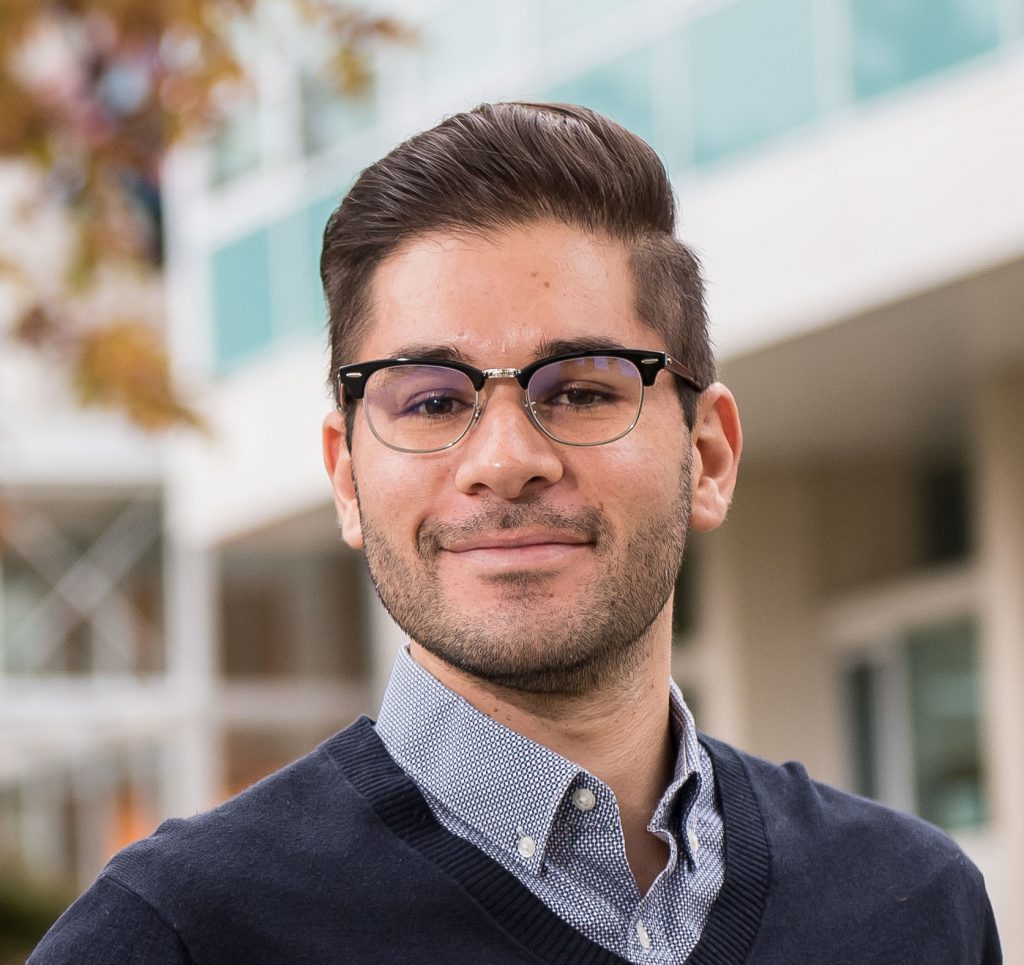

Lucas Porto, BASc
Lucas developed the face recognition and voice interaction systems that allowed Aether to interact with and approach clients. His work focused on training and deploying machine learning algorithms and creating pipelines for simultaneous processing of visual and dialog data.
Current position: Master’s student at the University of British Columbia, working on applied machine learning in medical imaging.
OTU 2022 Capstone Team – VR Robot Simulation Using Unity
(L to R: Craig Holder, Dylan Brush, Maija Kinnunen, Hao Tian Guan)
- Improving current digital replicas of the virtual DDA group home and JDQ office for VR robot simulation using Unity, including 3D Authoring and human avatars representative of older adults.
- Prototyping networking functionality for VR
- Exploring networking options to allow multi-users in the VR simulation.
- Prototyping VR functionality allowing interactions for users to navigate and interact with the Unity VR simulation.

Research Topics
In our research, design and development at the 3Spheres Robotics Project we focus on cutting-edge science and take a user-centered approach.
Our broad research topics include (mouseover images for text descriptions):
Our R&D path has progressed from a high-level concept to practical and customer-driven minimum viable experiments:

For information about potential research collaboration, please email us at aether@3srp.com
Prototyping & Testing Sites
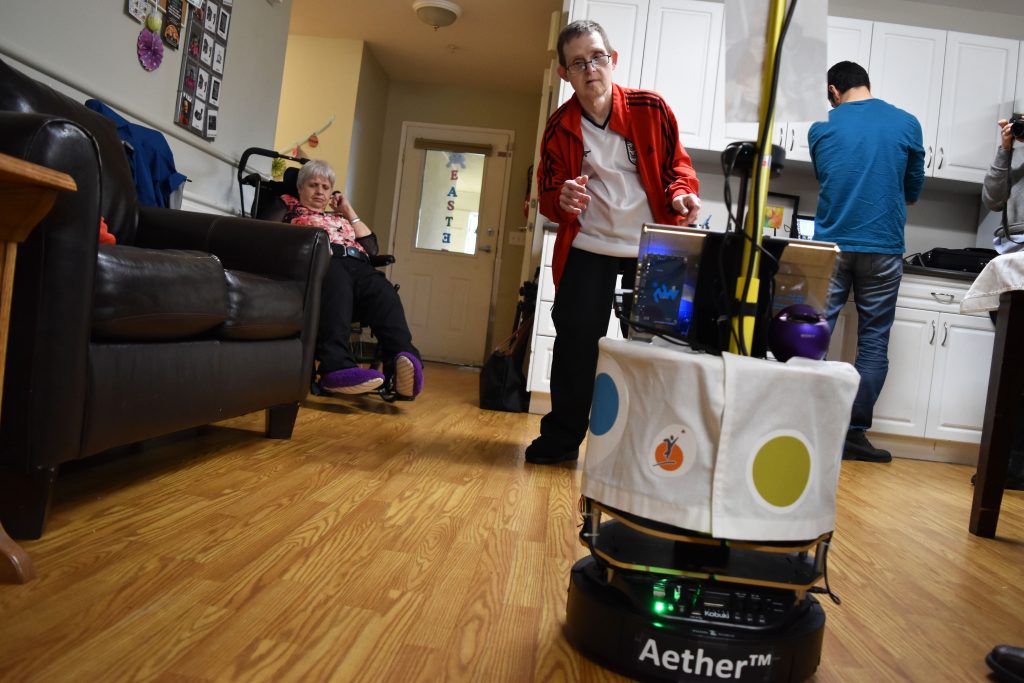
Our Aether robot is being field tested at various locations but primarily at:
- Camsell Group Home, a residential home for people with developmental disabilities, operated by the Developmental Disabilities Association
- Normanna a non-profit, 100 bed residential care facility located in Burnaby BC. Normanna is owned and operated by the Norwegian Old People’s Home Association.
Funders
The 3Spheres Robotics Project is funded by a unique and diverse group of for-profit, non-profit, academic and government organizations, consistent with the 3Spheres philosophy.
 |  |  |  |
To date, over $500,000 has been raised for the project. We are interested in engaging new funders and welcome all inquiries at aether@3srp.com
Care Providers
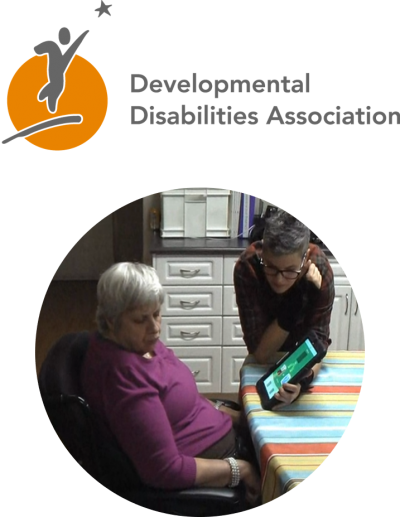
The Developmental Disabilities Association (DDA) is a community living agency that provides over 50 community-based programs and services to children and adults with developmental disabilities and their families in Vancouver and Richmond, Canada. DDA creates extended networks of support, invests in individual needs, and strive for an inclusive and safe community. Over 1,800 individuals and families in the Vancouver and Richmond area are serviced by DDA every year.
To see an overview of DDA programs and services, download their brochure here.
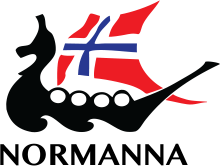
Normanna is a non-profit, 100 bed residential care facility located in Burnaby BC. Normanna is owned and operated by the Norwegian Old People’s Home Association. The volunteer Board of Directors takes great pride in the quality of care and services provided at Normanna. Our priority is to ensure Normanna, while being a multi-level, complex residential care facility with a dementia care unit, is a home for its residents.
